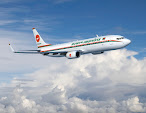 Fonterra, the world’s largest dairy exporter, came under fire from the New Zealand government, farmers and financial regulators for its handling of a food contamination scare that has triggered product recalls and spooked parents from China to Saudi Arabia.
Fonterra, the world’s largest dairy exporter, came under fire from the New Zealand government, farmers and financial regulators for its handling of a food contamination scare that has triggered product recalls and spooked parents from China to Saudi Arabia. The government sent officials to Fonterra premises to ensure a clearer message and to regain international confidence after New Zealand’s biggest company was criticized for dragging its feet in saying it sold whey protein products that contained bacteria that could cause botulism – a potentially fatal food poisoning.
Last week, Fonterra CEO Theo Spierings said the company did not face a ban on its products in China, only restrictions on whey protein concentrate. He said he expected the curbs would be lifted this week as soon as Fonterra provides Chinese regulators with a detailed explanation of what went wrong. China, Hong Kong, Sri Lanka and other countries, however, have issued fresh instant formula milk product recalls, and the New Zealand government warned that China could extend restrictions on whey protein powder to other dairy products.
Fonterra is a major supplier of bulk milk powder products used in infant formula in China, but does not sell in China under its own brandname after local dairy company Sanlu, in which it held a large stake, was found to have added melamine – often used in plastics – to bulk up formulas in 2008. Six babies died then and thousands were taken ill.
Gate recalled 80,000 cans of one type of its stage-three baby formula in Hong Kong and Macau. It said there were no signs of contamination in any of the products sold in the two regions. More infant formula tins were cleared from New Zealand supermarkets after Nutricia, part of French food group Danone which makes the Karicare brand, announced a blanket ban on two of its infant products.
Sri Lanka suspended milk powder imports from New Zealand, while Brunei media cited its government as ordering a recall and the ban on the import, distribution and sale of Fonterra food products. Fonterra has not identified either of those countries as having been affected by the safety issue, though it has said products containing the contaminated whey protein had been sold on to Malaysia, Saudi Arabia and Thailand.
Being aware of Fonterra’s dreadful effect, the the commerce ministry of Bangladesh has imposed restrictions on the import of Fonterra’s products. This means Bangladeshi companies will not be able to import any products from Fonterra until further notice.

Comments
Post a Comment